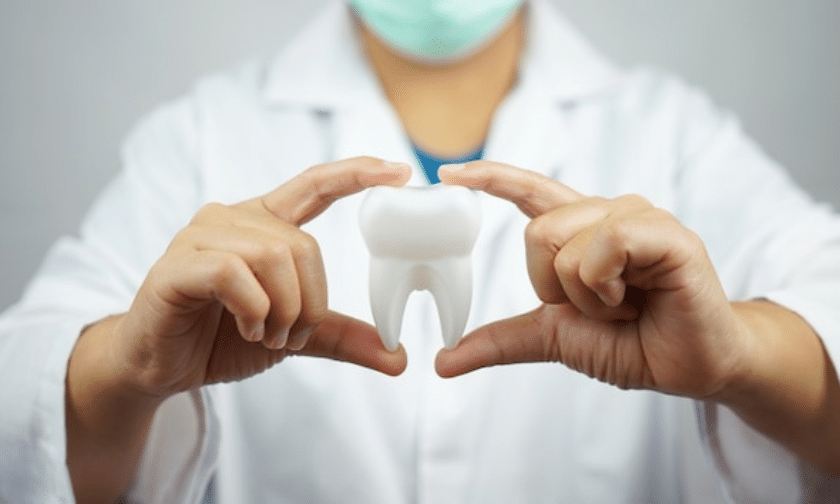Maintaining good dental health is not just about having a bright smile—it is a crucial part of overall well-being. Healthy teeth and gums allow you to eat properly, speak clearly, and avoid pain or discomfort caused by dental issues. Poor dental health can lead to cavities, gum disease, bad breath, and even affect your heart and overall immunity. Understanding how to care for your teeth and gums is essential for long-term oral wellness.
In this article, you’ll learn about the importance of dental health, common dental problems, preventive tips, nutrition advice, and routines to maintain strong, healthy teeth and gums.
Why Dental Health is Important

Dental health affects more than just your smile. It has a significant impact on overall health:
-
Prevents Tooth Decay: Proper care protects enamel and reduces cavities.
-
Prevents Gum Disease: Healthy gums prevent gingivitis and periodontitis.
-
Supports Oral Hygiene: Reduces plaque, bacteria, and bad breath.
-
Boosts Overall Health: Poor dental health is linked to heart disease, diabetes, and infections.
-
Enhances Confidence: A healthy smile improves self-esteem and social interactions.
Neglecting dental health can lead to tooth loss, expensive treatments, and long-term health problems.
Common Dental Health Problems
Being aware of common issues can help in early prevention:
-
Cavities: Caused by plaque buildup and sugary foods.
-
Gum Disease: Inflammation that can progress to serious infections.
-
Bad Breath: Often due to poor oral hygiene or infections.
-
Tooth Sensitivity: Triggered by enamel erosion, gum recession, or cracks.
-
Oral Infections: Includes abscesses, fungal infections, and more.
Most dental problems can be avoided with proper care and regular check-ups.
Daily Tips for Better Dental Health
1. Brush Twice a Day
Brushing removes plaque and food particles that lead to decay.
-
Use a soft-bristled toothbrush.
-
Brush in gentle circular motions for at least 2 minutes.
-
Use fluoride toothpaste to strengthen enamel.
Pro Tip: Replace your toothbrush every 3–4 months or after an illness.
2. Floss Daily
Flossing removes food debris and plaque between teeth.
-
Prevents cavities and gum disease.
-
Use gentle up-and-down motions to avoid gum injury.
Pro Tip: If traditional floss is difficult, use floss picks or water flossers.
3. Rinse with Mouthwash
Mouthwash helps reduce bacteria and freshens breath.
-
Use alcohol-free options to prevent dryness.
-
Use after brushing and flossing for best results.
Pro Tip: Mouthwash is a supplement to brushing, not a replacement.
4. Eat a Dental-Friendly Diet
What you eat directly impacts dental health:
-
Calcium & Vitamin D: Strengthen teeth and bones (milk, yogurt, leafy greens).
-
Vitamin C: Supports healthy gums (citrus fruits, peppers, berries).
-
Avoid Excess Sugar: Prevents cavities.
-
Crunchy Fruits & Vegetables: Clean teeth naturally and stimulate saliva.
Pro Tip: Drink plenty of water to wash away food particles and acids.
5. Avoid Tobacco and Limit Alcohol
Tobacco and excessive alcohol harm dental health:
-
Tobacco increases risk of gum disease, cancer, and staining.
-
Alcohol can dry the mouth, worsening dental issues.
Pro Tip: Quitting or reducing these habits enhances dental and overall health.
6. Visit Your Dentist Regularly
Dental check-ups every six months prevent problems before they become severe:
-
Professional cleaning removes tartar.
-
Exams detect cavities, gum issues, and oral cancers early.
-
Dentists provide personalized advice for better care.
Pro Tip: Schedule dental appointments in advance to maintain consistency.
7. Protect Your Teeth from Damage
Prevent injuries with simple measures:
-
Wear a mouthguard during sports.
-
Avoid using teeth to open packages.
-
Limit very hard or sticky foods that damage enamel.
Pro Tip: Protecting teeth avoids pain and expensive treatments.
8. Keep Good Habits at Home and Work
-
Brush or rinse after meals if possible.
-
Chew sugar-free gum to stimulate saliva.
-
Teach children good habits early for lifelong dental health.
Pro Tip: Consistency is key to strong, healthy teeth.
Sample Daily Routine for Optimal Dental Health
|
Time
|
Activity
|
Benefit
|
|---|---|---|
|
Morning
|
Brush + mouthwash
|
Removes overnight plaque
|
|
Midday
|
Rinse after meals
|
Reduces acids and food particles
|
|
Evening
|
Brush + floss + mouthwash
|
Prevents cavities and gum disease
|
|
Night
|
Avoid sugary snacks before bed
|
Reduces risk of decay
|
Additional Tips for Healthy Gums
-
Massage gums gently with a soft toothbrush or finger to improve blood flow.
-
Eat fibrous fruits like apples or carrots to naturally clean teeth.
-
Use herbal rinses like saltwater occasionally for gum healing.
Frequently Asked Questions (FAQs)
1. How often should I brush my teeth? Twice a day for at least 2 minutes each time.
2. Is flossing really necessary? Yes, it removes plaque and debris where brushes cannot reach.
3. Can diet affect dental health? Absolutely, high sugar intake and lack of nutrients can weaken teeth and gums.
4. Are dental check-ups important? Yes, they prevent long-term problems and detect issues early.
5. Can poor dental health affect overall health? Yes, it is linked to heart disease, diabetes, and infections.
Conclusion
Maintaining good dental health requires daily care, a balanced diet, lifestyle management, and regular dental visits. Brushing, flossing, mouthwash use, proper nutrition, and protective habits keep teeth strong and gums healthy. A consistent oral care routine prevents dental problems, supports overall health, and ensures a confident smile.
“If you are looking for a natural way to improve your health and lifestyle, [Synadentix] could be the perfect choice. Start your journey today.”







